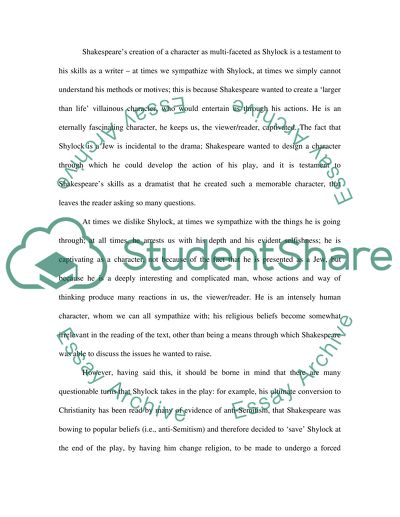Cite this document
(“Merchant of venice Essay Example | Topics and Well Written Essays - 1250 words”, n.d.)
Retrieved from https://studentshare.org/miscellaneous/1536746-merchant-of-venice
Retrieved from https://studentshare.org/miscellaneous/1536746-merchant-of-venice
(Merchant of Venice Essay Example | Topics and Well Written Essays - 1250 Words)
https://studentshare.org/miscellaneous/1536746-merchant-of-venice.
https://studentshare.org/miscellaneous/1536746-merchant-of-venice.
“Merchant of Venice Essay Example | Topics and Well Written Essays - 1250 Words”, n.d. https://studentshare.org/miscellaneous/1536746-merchant-of-venice.


